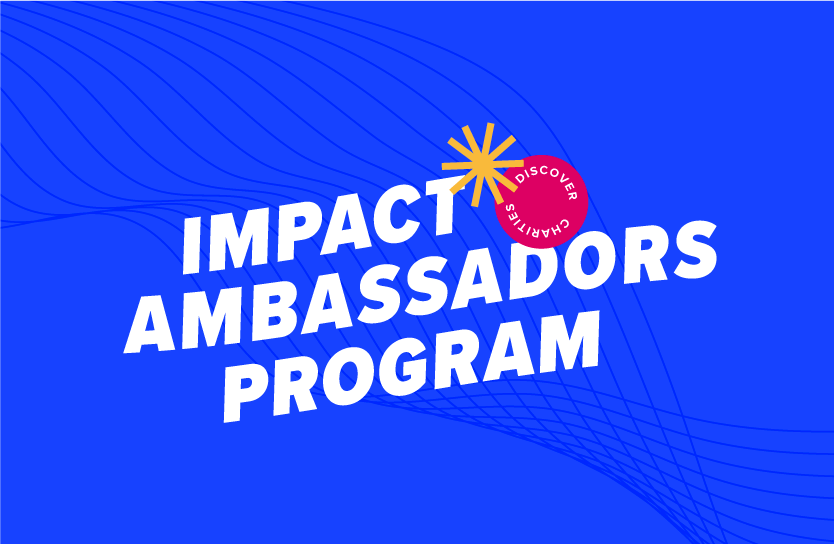These charities help first-generation and low-income students reach their full potential
October 28, 2020
5 min read
In this guest post, Impact Ambassador Tommy Kuo shares his inspiring story of achievement. Check out 4 high-impact charities supporting students who are building a brighter future.
Editor’s Note: This article is part of a series in which Impact Ambassadors are sharing their insights, perspectives, and stories to help you #ChooseYourImpact.
My family and I couldn’t contain our excitement when my university acceptance letter arrived in the mail. A few days later, I received a scholarship for incoming students.
Being the first generation in my family to attend university was indeed a cause for celebration. However, excitement quickly faded into apprehension. Those closest to me would not have the knowledge to help me navigate through the regular challenges of attending university, combined with added factors like being a person of colour and speaking English as a second language.
As I began to compare myself with other university students on forums and social media, questions arose: “Am I even qualified to attend university? How can I compete with other students academically? Will I disappoint those who believe in me?” And, the biggest question: “What if my university peers expose me as an impostor?”
Fear of being an imposter
There should have been no reason for me to question my abilities. I excelled academically throughout high school, and my teachers never doubted my preparedness for university. My university was confident in me and offered me a scholarship.
Yet the fear of being an impostor lingered. I believed I wouldn’t compare to students whose parents had achieved a university education in Canada. To overcome this feeling and prove my academic abilities, I chose a difficult STEM (Science, Technology, Engineering, and Math) honours program. After volunteering in a research lab for months, I successfully earned research funding provided to students with the highest GPAs.
What could have happened
Speaking to my own experience, I can easily imagine how a lack of financial support would have transformed my university experience. If I hadn’t received a scholarship, I would have had no choice but to work part-time. I might have skipped meals to save money for rent. I probably wouldn’t have had the same amount of time and energy to study efficiently and earn top grades.
Most likely, I wouldn’t have volunteered in a research lab. Even if I had managed to volunteer in a lab, my grades may not have been good enough to get research funding. This experience could have limited my research experiences, and likely led to a discouraging lack of opportunities. In essence, without a scholarship, my imposter syndrome would have become a self-fulfilling prophecy.
Overcoming to achieve
Instead, I was fortunate enough to come across opportunities that aligned with my future goals because I actively looked for such opportunities. I was not afraid to ask for advice from my professors and peers. I applied for every opportunity that would teach me useful skills. I dealt with rejections and bounced back stronger. I tried really hard because I knew I didn’t want to be an impostor.
My story is one of achievement and I eventually overcame those feelings of not being good enough. It is also a story about the importance of supporting first-generation and low-income students.
Students need support
There is a great need for accessible academic and financial support for low-income and first-generation university students. Such programs will help create a truly equitable, inclusive learning environment for all.
I wouldn’t have been where I am today without the access to financial support I received. My story is just one of many. In the 2016-2017 school year, more than 497,000 post-secondary students in Canada received government loans that needed to be paid back, adding to their financial burden. And this number did not include low-income international students who were not eligible for government loans, or those who chose not to take out loans because they knew they wouldn’t be able to pay back.
There are many students who are working to build a future for themselves in Canada who need your support. Please consider donating to our Low-Income Student Support portfolio so that you can help students like me reach their full potential. Your donation will go to the following charities, which are selected by students who are themselves first-generation, low-income students and whose lived experiences informed their selections.
Charities supporting first-generation and low-income students
- World University Services of Canada (WUSC): Offers youth refugees the opportunity to receive Canadian university education.
- Meal Exchange Canada: Supports students facing food insecurity in Canada.
- Yo Bro and Yo Girl: Empowers at-risk youth to avoid violence and life on the streets.
- Pathways to Education Canada: Supports low-income students to stay in school and bridges the financial, technological and environmental barriers to accessing education
We understand most of us don’t have the time or resources needed to make the most informed giving decisions. That’s why we have launched the #ChooseYourImpact campaign, connecting you to passionate changemakers and thought leaders—called Impact Ambassadors. Meet our Ambassadors and learn more about how you can support their causes.

